You’ll have to forgive me, as this is going to be one of those in-between Actuator weeks. I finally took a couple of days off last week after working through the last few weekends, and today I’ve been rewarded with a throbbing migraine. Isn’t the human body magical? Either way, it’s an exciting week for those of you who like their robotics newsletter short and to the point.
First thing I need to address is that video game controller. I’m a person on the internet. I wholly understand why others on the internet latched on to the modified Logitech G F710 Wireless Gamepad. OceanGate Expeditions was charging passengers $250,000 a head for a ride to see the Titanic. That’s roughly 6,250 F710s.
A lot of folks reading about the tragedy zeroed in on that little tidbit. Surely, they speculated, a company careless enough to entrust human lives to a Bluetooth PC game controller was just setting itself up for failure. If you’re looking for a quick way to meme-dunk on a tragedy, you go with the controller.
No doubt everyone reading this knows better. As of this writing, it’s too early to point the finger at one thing. For now, I’d say Mark Harris’ piece on OceanGate is a great place to look if you’re attempting to unpack what went wrong here. Quoting:
David Lochridge was terminated in January 2018 after presenting a scathing quality control report on the vessel to OceanGate’s senior management, including founder and CEO Stockton Rush, who is on board the missing vessel.
According to a court filing by Lochridge, the preamble to his report read: “Now is the time to properly address items that may pose a safety risk to personnel. Verbal communication of the key items I have addressed in my attached document have been dismissed on several occasions, so I feel now I must make this report so there is an official record in place.”
The report detailed “numerous issues that posed serious safety concerns,” according to the filing. These included Lochridge’s worry that “visible flaws” in the carbon fiber supplied to OceanGate raised the risk of small flaws expanding into larger tears during “pressure cycling.” These are the huge pressure changes that the submersible would experience as it made its way to and from the deep ocean floor. He noted that a previously tested scale model of the hull had “prevalent flaws.”

Now, again, I would certainly wait for official reports before feeling confident enough to declare anything online. I’m also not rushing to dunk on anyone involved in this bit of human tragedy. What I can say is finger pointing at the use of a gaming controller seems misguided. If you’ve spent time in and around robots, you understand this.
I have very vivid memories of visiting military-backed robotics firms more than a decade or so ago and being genuinely surprised to see wildly expensive systems programmed to work with Xbox and PlayStation controllers. Over the years, these systems have only become more common. These gaming accessories are familiar — most people coming up through the military or entering the robotics world have used them for extended periods over the course of their lives. They also work — decades of gaming development have seen to that.
In 2018, USA Today reported with some surprise that the USS Colorado, the Navy’s 377-foot sub, was utilizing Xbox controllers. It noted at the time:
The Colorado is the first attack submarine where sailors use an Xbox controller to maneuver the photonics masts, which replaced periscopes, [Colorado commanding officer Cmdr. Reed] Koepp said. Other submarines have joysticks. Using commercial off-the-shelf technology saves money, and young sailors report to the submarine knowing how to use it, Koepp said.
Given the high-profile nature of this story, coupled with people focusing on the controller, I ultimately wonder whether companies and organizations will begin to back away from this longstanding practice. My guess is no — certainly not once the underlying causes are made clear. In the meantime, however, there are much bigger things to worry about in terms of the submarine story.

The second thing I wanted to discuss is also a plug. For the first time ever, TechCrunch is hosting a Hardware Stage at Disrupt. Hardware has always occupied a strange space on our site. We’ve never been a gadget blog — there are plenty of those (I’ve worked at a number myself). Instead, we’ve looked for unique ways to cover the category that fit with our broader mission.
For me, that’s meant two things. The first one is easy: hardware startups. It’s a great opportunity to see what’s just over the horizon for consumer electronics. The second one is ever evolving. It’s generally deeper tech and not consumer focused. It’s sometimes space, sometimes transportation and, more often than not, robotics.
Seeing as how I’m in charge of putting together the stage this year, that’s ultimately going to mean a lot of robots. We’ve got a few panels lined up that I’m excited to tell you about. Today, however, we’re starting with just one. This is probably something you’ve seen me write about quite a bit over the last few years. Manufacturing led the first major wave of automation, and now we’re in the midst of a logistics revolution. So, what’s next?
There are a lot of intriguing answers to the question, but for me, it keeps coming back to three major categories: healthcare, agtech and construction. All three are currently reeling from labor shortages, and they’re all relatively recession-proof in the sense that they’re, you know, necessary for life. And from where I sit, none seem anywhere near as far along as they should be.
If some venture capitalist firm was foolish enough to entrust me with their money, these are the three areas I would most heavily invest in at the moment (with food being another recession-proof necessity and therefore a close fourth). This is precisely why I’m excited that this is the first Disrupt panel I’m able to tell you about.
Single-topic panels are important, of course, but given Disrupt’s more general audience (versus one of our TC Sessions: Robotics events), I figured it would be fascinating for our audience to hear from leaders in a broader range of topics, discussing the future of robotics more broadly. And we couldn’t have asked for a better trio — Claire Delaunay, Tessa Lau and Andrea Thomaz. All three are super-smart veterans of TC events.
You likely know Claire Delaunay from her time at Nvidia’s very successful robotics push. These days, she’s investing in and involved with agtech firm Farm-ng as an advisory board member. Tessa Lau is the founder and CEO of robotic construction firm Dusty Robotics, and Andrea Thomaz is the co-founder and CEO of Diligent Robotics, whose Moxi robot you’ve probably seen if you’ve (unfortunately) been to a hospital recently.
Disrupt is being held in San Francisco September 19–21. More panels coming soon. Save up to $600 when you buy your pass now through August 11, and save 15% on top of that with promo code ACTUATOR. Learn more.
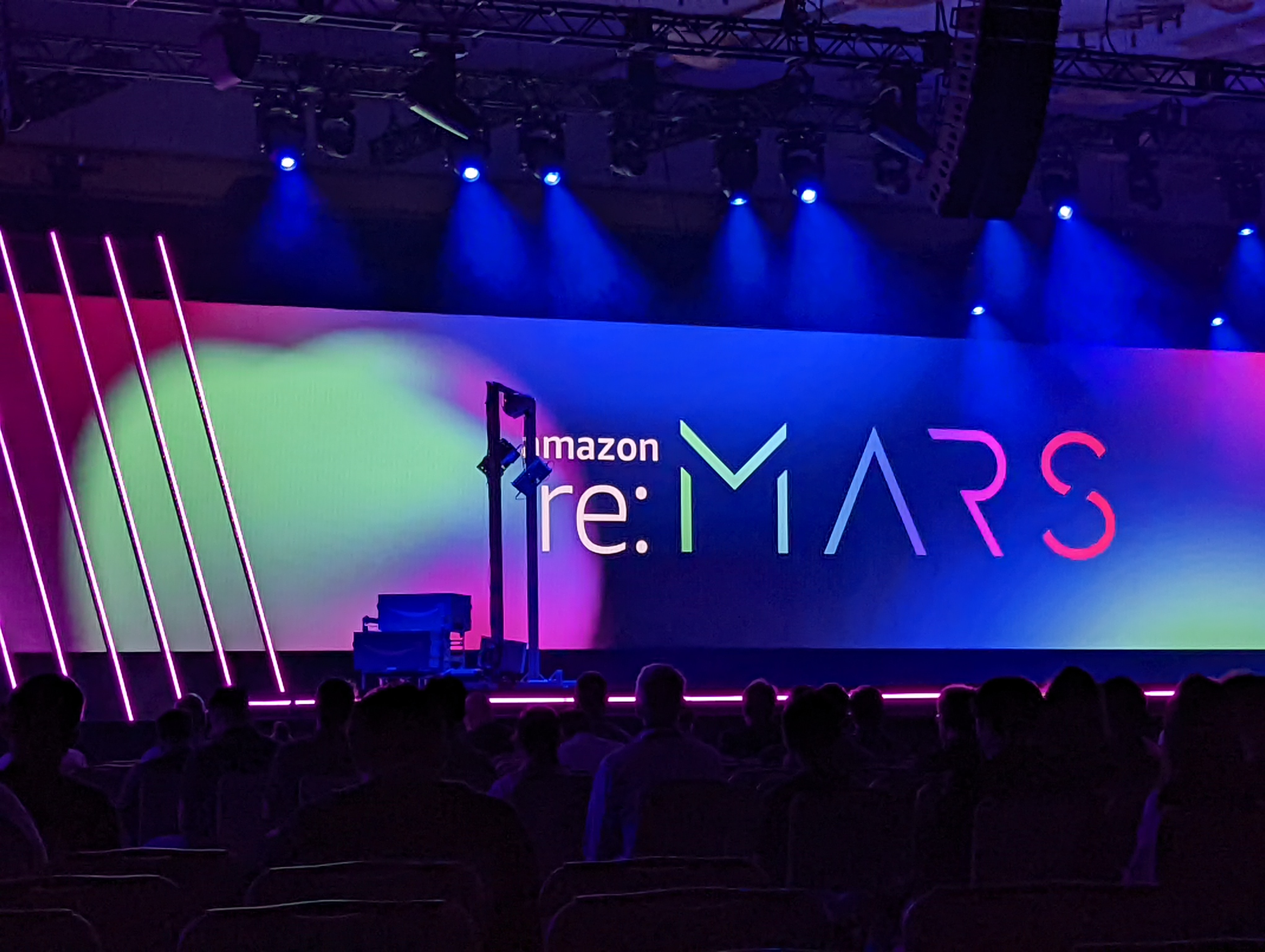
Speaking of conferences, there will be no re:Mars this year. We kind of sensed this one coming, given the complete radio silence, coupled with major cost-cutting at Amazon. The company confirmed the lack of conference in a statement to TechCrunch:
AWS hosts hundreds of thousands of customers and partners every year at hundreds of events around the world. These events provide an invaluable opportunity to connect with our customers. Their time is precious and we take seriously the responsibility to make each event valuable for every attendee, whether that’s through developing new skills, identifying new solutions that will transform an organization, or building new connections that can advance a career. We consulted with customers and the community as always, and for 2023, decided to incorporate re:MARS topics — machine learning, automation, robotics, and space — into a well-funded lineup of existing AWS events.
All of the cloud stuff aside, I really enjoyed re:Mars last year and was hoping to go back — even if it meant Las Vegas in the summer. The event has been a nice showcase for Amazon Robotics’ industrial systems, as well as innovations from a range of startups aligned with the company to varying degrees. Last year also saw some expansion into its home robotics play on the heels of the Astro announcement.
I had an interesting conversation with Ken Washington at last year’s event, though the automotive veteran has since moved on from his role as the head of Amazon’s consumer robotics play. Earlier this month, he was named the CTO of medical technology firm Medtronic.
“This new leadership role will help Medtronic to harness the innovative spirit of our founders and ensure we are capitalizing on our scientific and technological knowledge to invent, innovate and disrupt the healthcare technology market of the future,” said the company’s CEO, Geoff Martha. “Dr. Washington will help Medtronic expand use of our technology platforms across our portfolio — including robotics, sensors, implantables and AI — improving our returns on investments in innovation and expanding our technological competitive advantage to drive durable growth.”
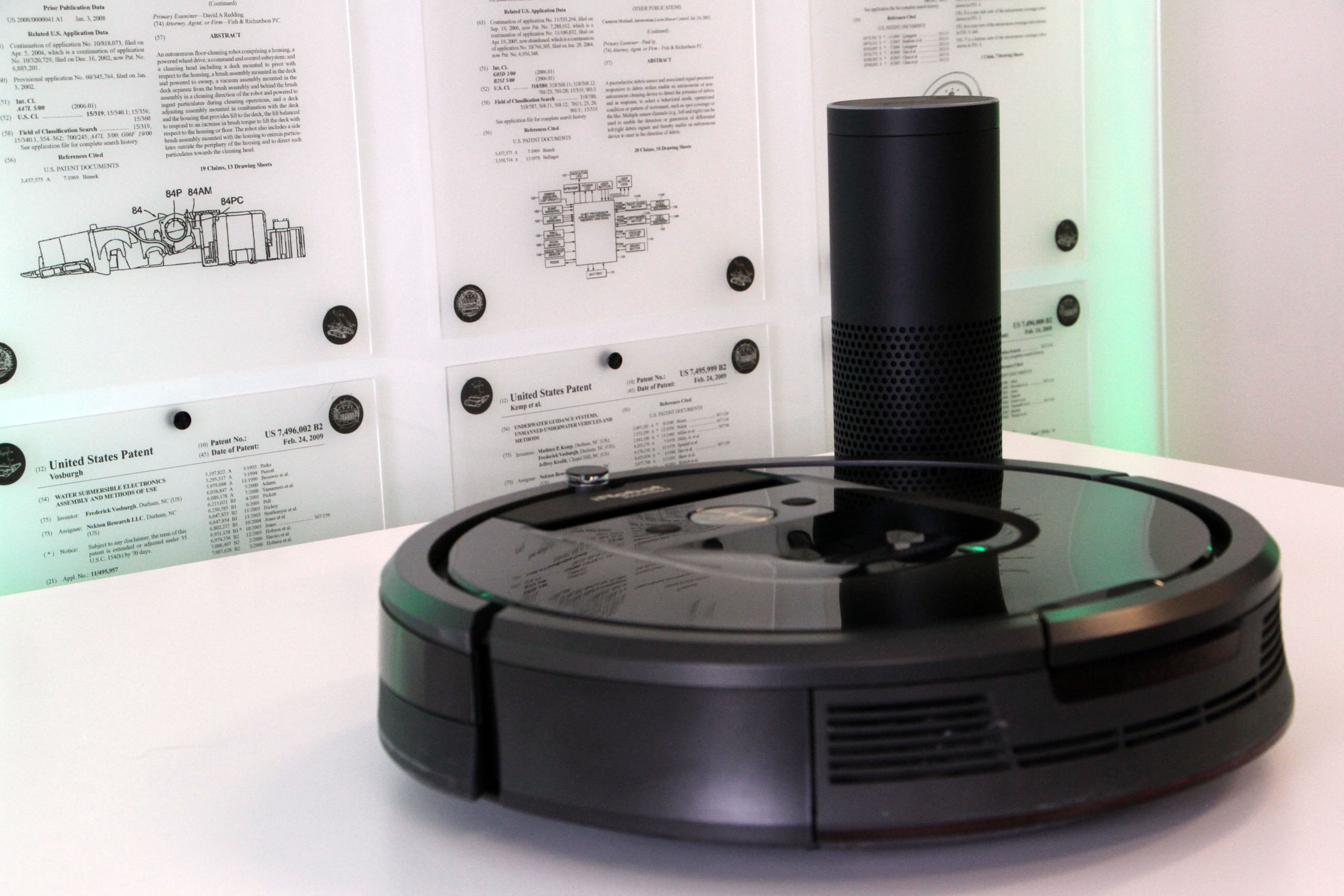
Some happier news for Amazon’s consumer robotics play. There’s finally been some movement on the iRobot deal after months of radio silence. We knew regulators were going to slow things down considerably due to legitimate privacy and potential antitrust concerns — and they’ve certainly delivered. The initial announcement of the deal celebrates its first birthday in August, and things have been slow going since.
There are a lot of governmental bodies with lots of concerns, but two months after announcing that it would be looking at the deal, the U.K.’s Competition and Markets Authority has given it the go ahead, stating that it “would not lead to competition concerns in the U.K.” The FTC and the European Commission are both looking at the deal, with the latter planning to announce a decision next month.

This week, Karakuri announced that it’s calling it quits. The food robotics startup cited an inability to raise in its decision to close up shop.
“It’s with a very heavy heart that I have to report that our journey at Karakuri is coming to an end,” founder and CEO Barney Wragg said in a LinkedIn post. “For the past five years, we’ve developed and deployed robotics for the QSR industry. We’ve survived many challenges, including the pandemic and our bank going bust [on] us, but sadly we’ve been unable to find the funding we need to move to the next level.”
Mike Butcher seemed suitably impressed when he checked out the company’s tech in December 2020, noting, “Last week I witnessed for myself how a new kind of robot really could — as sci-fi has been telling us for many years — create and serve us food.” There’s still a huge future in food robots, of course, but much like Zume’s recent closure, promising startups can’t always stick the landing. That’s a truism across all industries. Good on Wragg for including a list of now-former employees looking for gigs. Check out that post if you’re hiring.
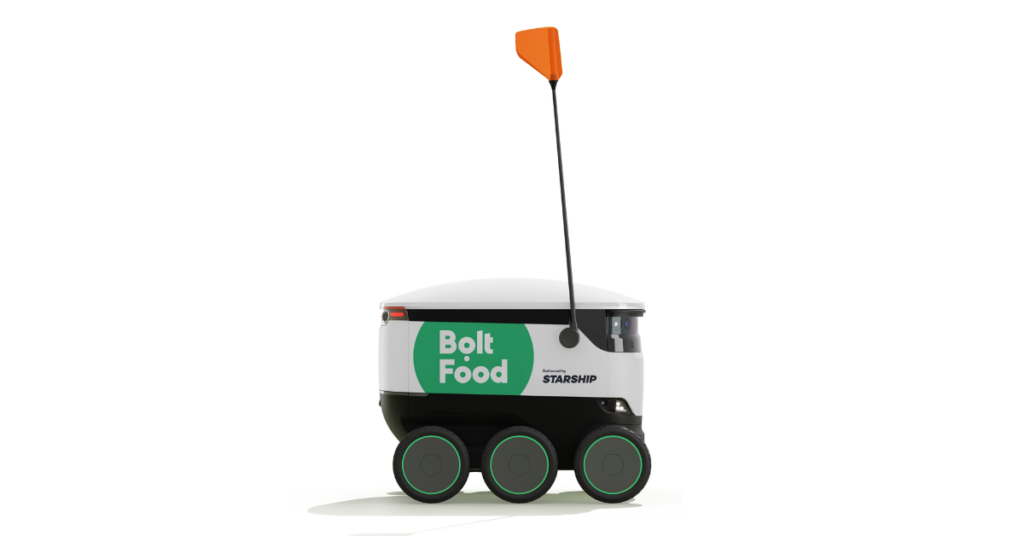
This week, Estonian Uber competitor Bolt announced a last-mile robotic delivery partnership with Starship Technologies. The partnership is still very early stages, with a pilot program set for Tallinn, Estonia.
“Bolt and Starship share very similar goals of promoting sustainability in local transport. In our case, we offer a convenient and on-demand autonomous delivery service, perfectly aligning with the mission of making cities more eco-friendly,” Starship CEO Alastair Westgarth said in a release.
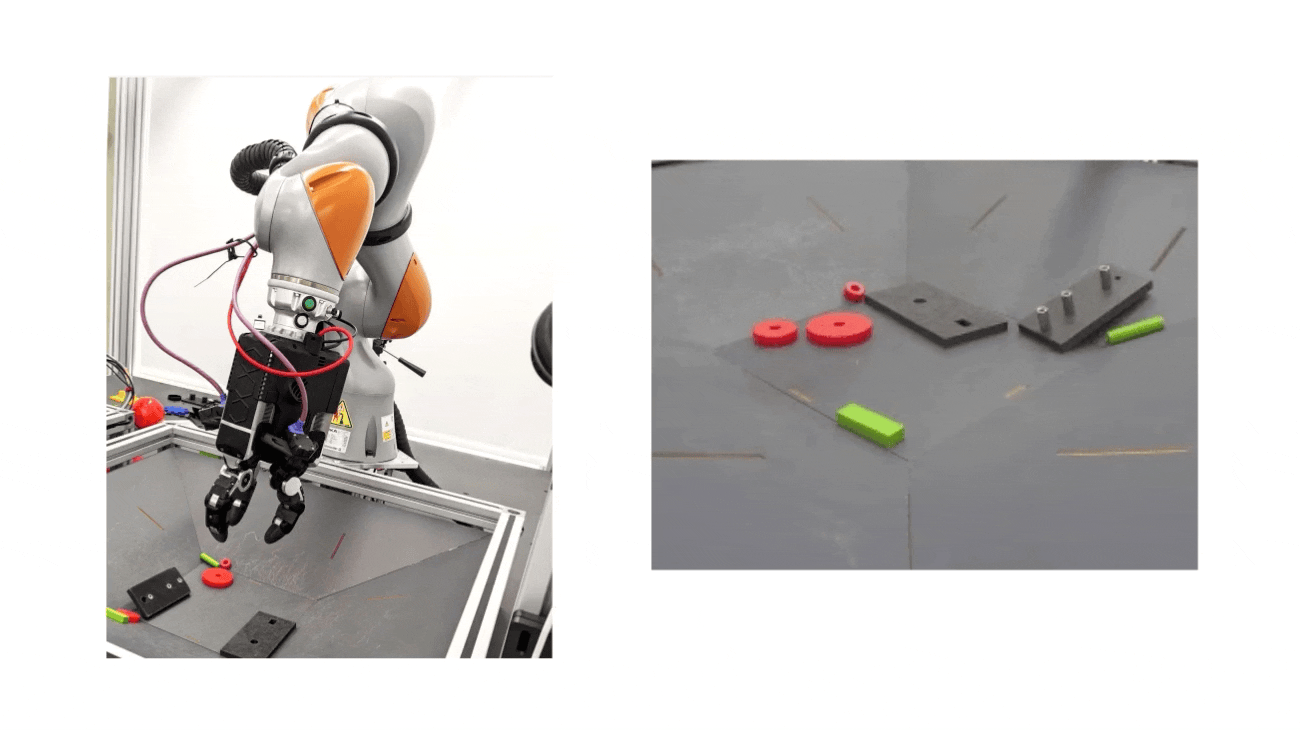
And following on the tail of Google’s Barkour project is DeepMind’s RoboCat, whose name arrives courtesy of the Gato AI model. “The project is designed to adapt AI problem solving to real world robotic systems,” research scientist Alex Lee tells TechCrunch. “Provided with a limited number of demonstrations for a new task, RoboCat can be fine-tuned to the new tasks and in turn self-generate more data to improve even further.”

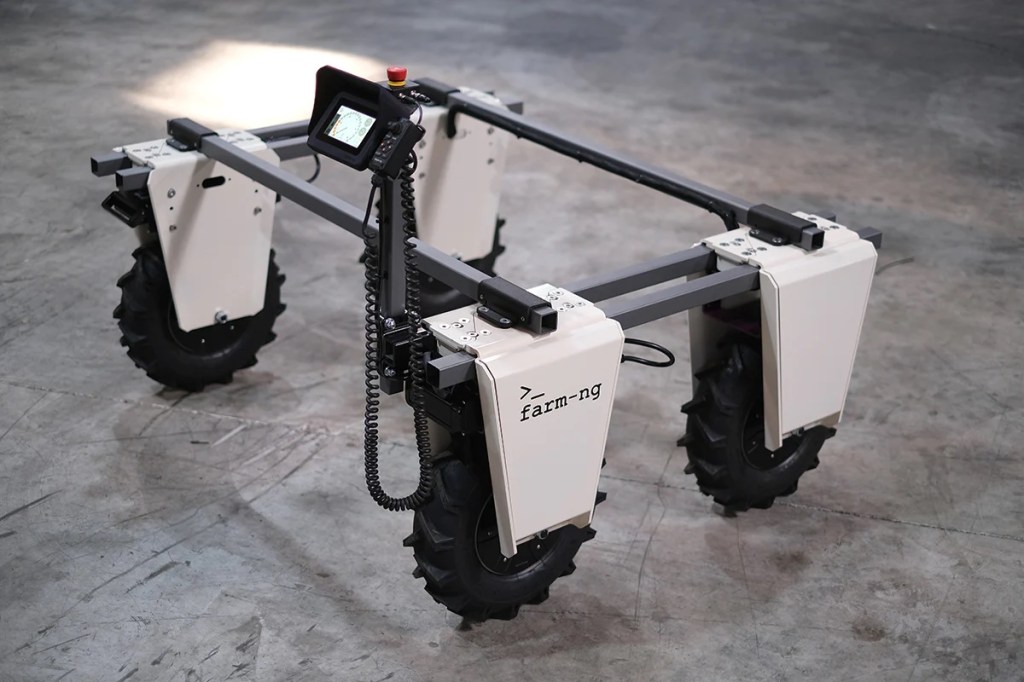





























Comment